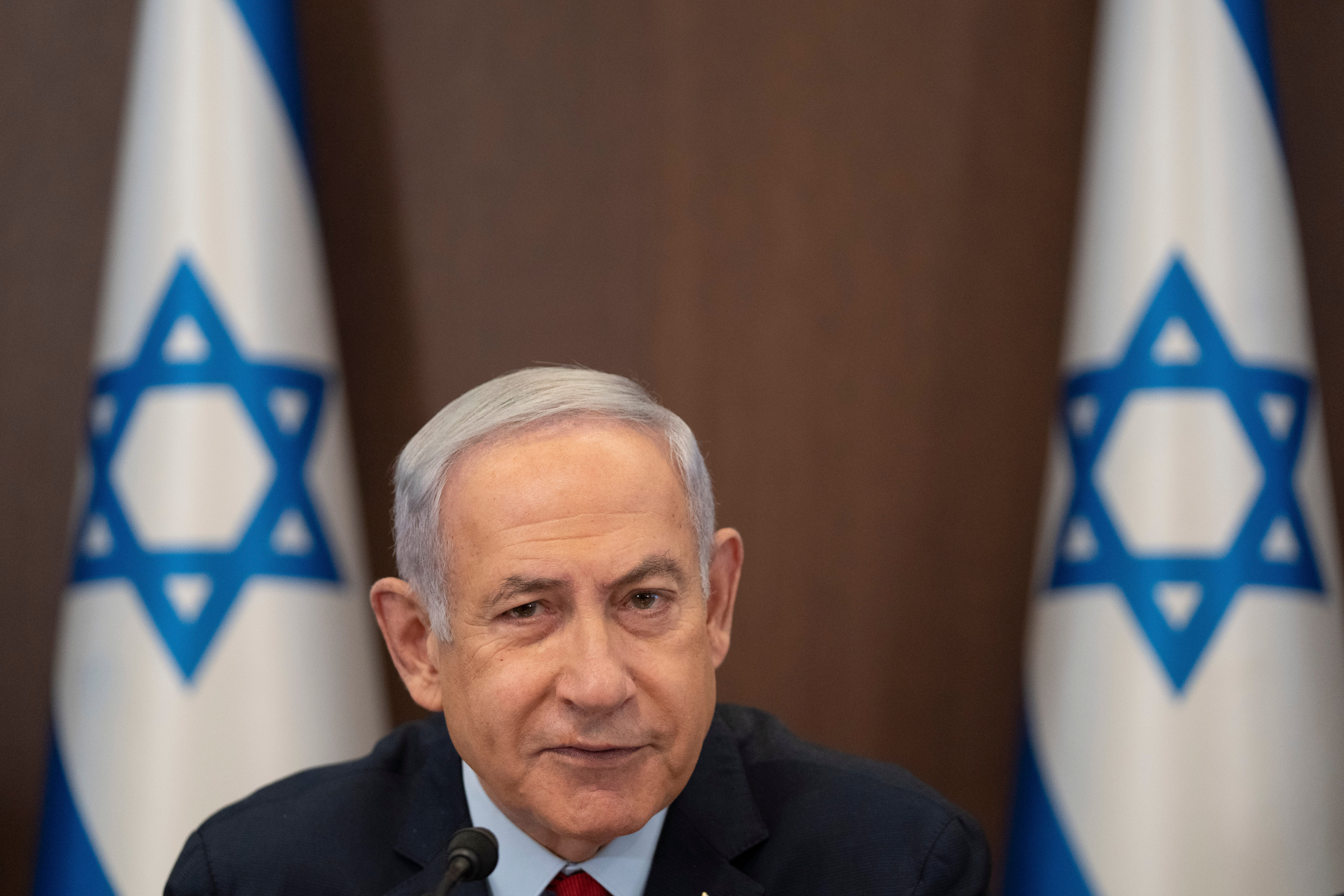Netanyahu says he's opposed to any interim US-Iran deal on nuclear program
Israeli Prime Minister Benjamin Netanyahu says he opposes any interim agreement reportedly being negotiated between the U.S. and Iran over its nuclear program

Your support helps us to tell the story
From reproductive rights to climate change to Big Tech, The Independent is on the ground when the story is developing. Whether it's investigating the financials of Elon Musk's pro-Trump PAC or producing our latest documentary, 'The A Word', which shines a light on the American women fighting for reproductive rights, we know how important it is to parse out the facts from the messaging.
At such a critical moment in US history, we need reporters on the ground. Your donation allows us to keep sending journalists to speak to both sides of the story.
The Independent is trusted by Americans across the entire political spectrum. And unlike many other quality news outlets, we choose not to lock Americans out of our reporting and analysis with paywalls. We believe quality journalism should be available to everyone, paid for by those who can afford it.
Your support makes all the difference.Israeli Prime Minister Benjamin Netanyahu said Sunday that he opposes any interim agreement reportedly being negotiated between the U.S. and Iran over its nuclear program.
Netanyahu spoke after reports in Israeli media said understandings are being reached between Washington and Tehran that would seek to hold back Iran's nuclear program somewhat, in exchange for some sanctions relief. The reports could not be independently confirmed and the U.S. has publicly denied any such deal.
Netanyahu said Israel had informed the U.S. that “the most limited understandings, what are termed ‘mini-agreements’, do not – in our view – serve the goal and we are opposed to them as well.”
The Israeli site Walla last week reported that under the emerging understandings Iran would limit its uranium enrichment to 60% in exchange for sanctions relief. The site also said the sides were discussing reciprocal prisoner releases.
State Department spokesman Matthew Miller said last week “there is no deal," adding that the reports were untrue.
In its report, Walla said Netanyahu had revealed details of the agreement at a recent parliamentary committee meeting. The U.S. and Israel share intelligence and a prime focus of the countries' interactions is Iran and its nuclear program.
Netanyahu vehemently opposed the 2015 deal between Iran and world powers brokered by the Obama administration that sought to rein in Iran's nuclear program. He was a major supporter of President Donald Trump's 2018 decision to withdraw from the deal, which left it in shambles.
Iran says its program is meant for civilian purposes. Israel considers a nuclear Iran as a major threat, citing its calls for Israel’s destruction and its support for anti-Israel militant groups across the region.
Israel says it does not rule out military action to prevent Iran from making a nuclear weapon.